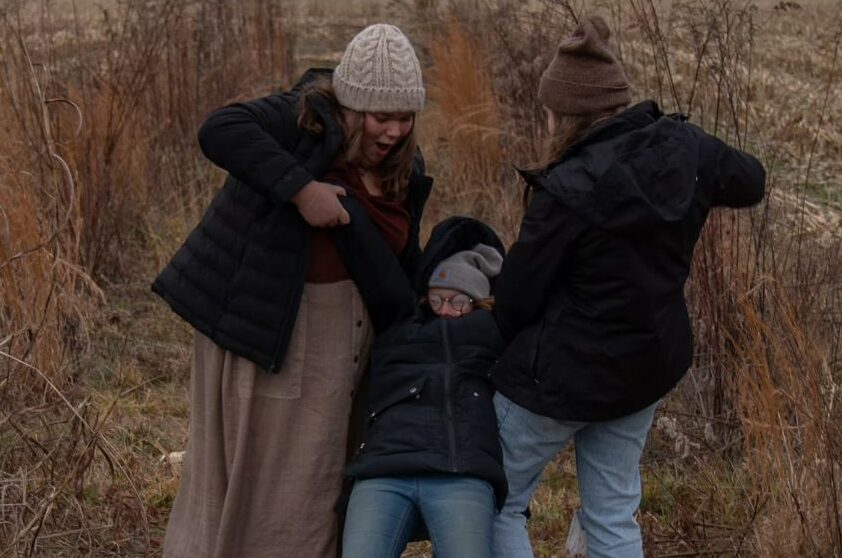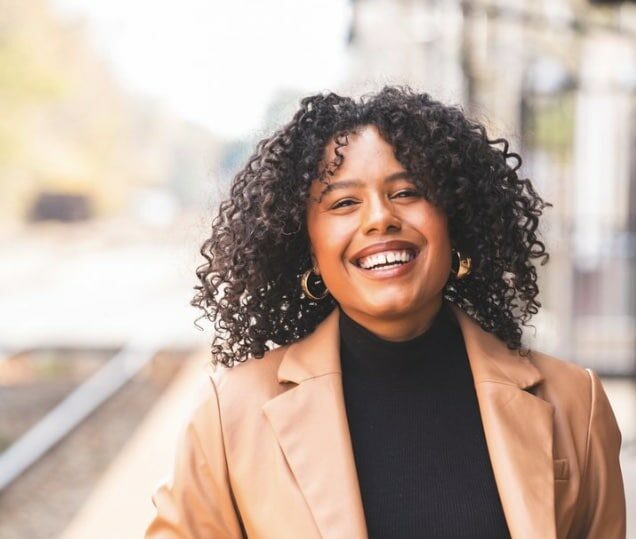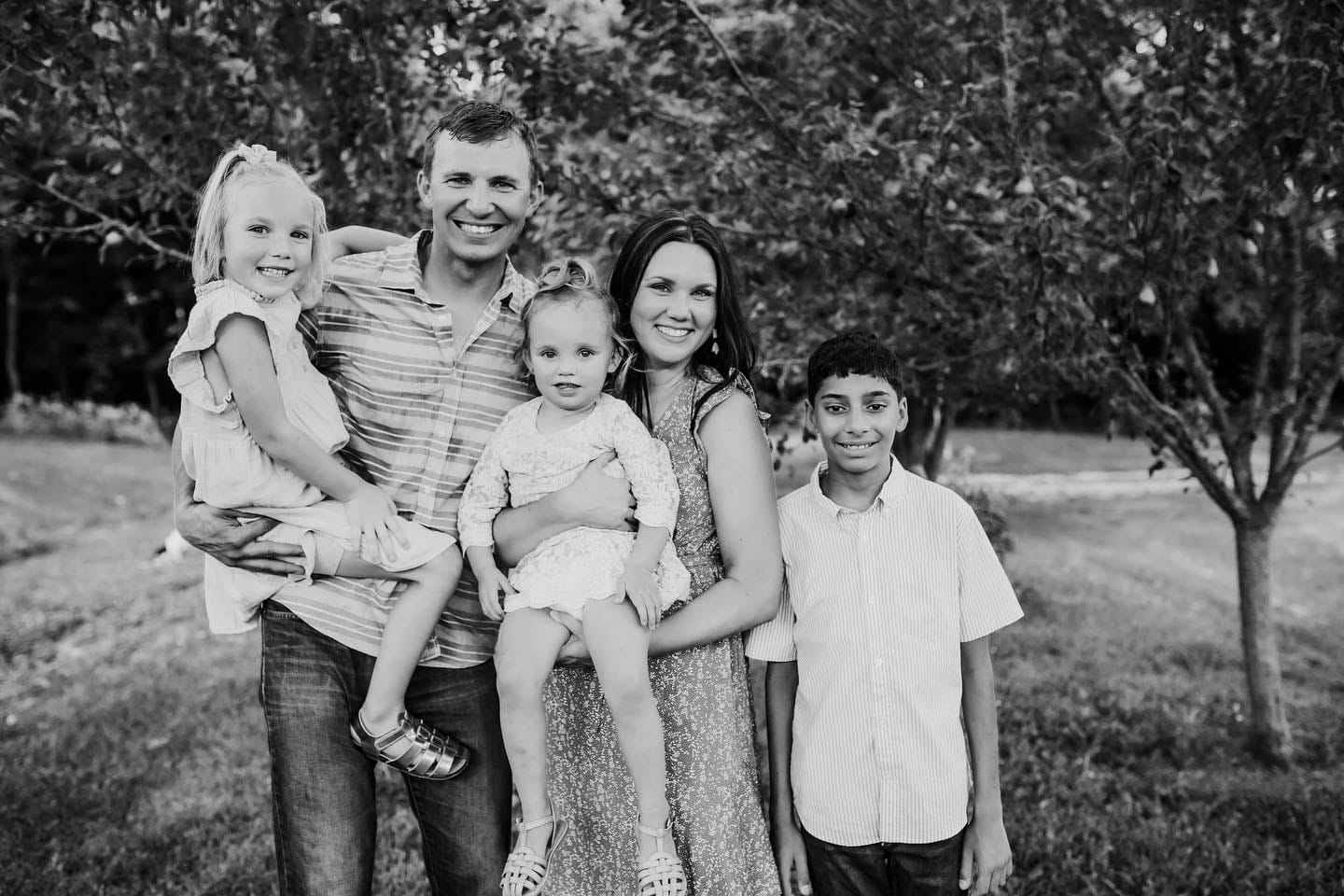
Written by: Laura Mobley
My name is Laura Mobley and I’m currently the Live 1:17 Director, for adoption and foster care, at Traders Point Christian Church in Indianapolis, IN. I was previously the Foster Care Director for Hands of Hope, a bridge organization in the Indianapolis area, where I oversaw the Church Advocate Network, DCS (Department of Child Services) Engagement, and launched Care Communities for the state of Indiana. I’m passionate about equipping the local church to care for vulnerable children. My perspective is different, as I’m not a foster mom. But I hope my story will encourage others to find their piece of the foster care puzzle.
I graduated with my Doctor of Pharmacy degree in 2008, with the hope and promise that I could have whatever material possession my heart desired. But as I dreamed, I became more aware that I lived more comfortably than most of the world. I’d heard the statistics before – about poverty, lack of food and water, and the overwhelming orphan crisis – but this time they began to sink into my heart. But what could I do about it?
One day, while driving down the interstate with my husband and 1-year old son, I remember asking my husband “if God ever called us to adopt, do you think he’d make it obvious?” Adoption or foster care was never a part of my plan. But wouldn’t you know, that next weekend our church launched the Live 1:17 Ministry – a call to live out Isaiah 1:17. “Do good. Seek justice. Help the Oppressed. Defend the cause of the fatherless. Plead the widow’s cause.” I got involved; even though I knew absolutely nothing about adoption, foster care, vulnerable children or poverty. Those first three years I slowly but steadily learned, my heart softened, and I prepared for what was next.
In the fall of 2014, we found ourselves in a meeting about Safe Families, and had absolutely no reason to say no to becoming a host family. We had another biological child, a 5-bedroom house and a minivan. I was also working fewer hours at the hospital and had the capacity to care for more kids. I know the purpose of Safe Families is to help families in crisis, but honestly, I think I benefitted more than any of the families we served. I began to understand how generational poverty affected people. I began to understand the fear and lack of trust (and rightfully so) these families felt as they let perfect strangers care for their children because they had no other options. I began to understand the need for racial unity. I began to get close enough to the problem that it was no longer abstract, but a person with a name and story.
Once you get a taste of the problem, it’s hard to not completely jump in. Our first Safe Families placement prompted prayer for discernment on what else we could do to help. It soon became clear to us. Adoption. International. Special needs. China. Right now. After a 9-month whirlwind, we brought home our son from China. Unlike our Safe Families process, which was riddled with challenges, our adoption was way easier and faster than we planned.
Even while we were caring for kids in our home, the burden of the orphan care crisis overwhelmed me. For months, I couldn’t sleep at night. I didn’t understand it. “God, I thought your burden was supposed to be light? This is not light!” I felt as though my God had sliced off the entire burden allotted to our huge church and handed it to me. There are only so many kids we can have in our house. And I’m not even a “kid person.” What about (insert the name of any other family who are obviously way better parents than us)? Slowly but surely, more and more people came forward to help me carry that burden. And in hindsight, I’m thankful that the burden lay so heavily on my heart, otherwise I may have not been able to persevere during some really hard seasons of ministry. I knew I had a purpose, a mission, a calling.
At this point, it was time for me to step up and lead the Live 1:17 Ministry, still as a volunteer. And, it was time to explore the uncharted waters of foster care. Out of seemingly nowhere, I believe that God began stirring the hearts of the people in our church for foster care. Families who had never considered foster care. Families who never even wanted to have kids. Families who chose foster care after an infertility diagnosis, even knowing there was no certainty for permanence of the kids in their homes. Our team jumped on board. We hosted a foster care informational event. We had many families say yes. This prompted our local Department of Child Services reaching out to us and thanking us for all the families we sent them, a key moment in beginning to build a relationship with them.
We began having amazing families step up and say yes. And then they started to fall apart. Being a foster parent is emotionally, physically, and spiritually demanding. We then knew it was time to focus our efforts on a way to support them that didn’t continue to add unsustainable burden on our leadership team. One of my leaders had heard about a foster support model called Care Communities out of an organization in her home state of Georgia. We soon found ourselves in Atlanta learning the model directly from the team at Live the Promise. Nationally, 50 percent of foster families quit after the first year or first placement. With this model, that number drops to less than 10 percent! Care Communities provide consistent, sustainable support for foster families. We came back to Indianapolis and began the process of figuring out what Care Communities would look like in our church and in our state. Over the past 18 months, over 250 people have been trained and 27 Care Communities have been launched. While we don’t yet have retention statistics, we have stories. “I would have quit if it wasn’t for my Care Community.” “Our Care Community is currently holding us up.” And from those participating “what an honor to get to serve this family. I’m so glad I have this opportunity.” And we’re beginning to see those on a Care Community decide to become foster parents themselves. In 2017, 47 children were served through a Care Community in our church. I think back to my sleepless nights. I couldn’t care for 47 children in my home, but I could be a part of mobilizing many people to care for 47 children.
Care Communities provide a way to connect foster families with people who want to help support them. We match 4-6 families with a foster family and give each of them a role. Child mentors provide childcare 1-2 times per month or provide mentoring or tutoring for older kids. Family helpers collectively provide a weekly meal for the foster family, and help with yard work, groceries or other household tasks. The interim caregiver provides overnight care for the kids (depending on agency regulations). The Team Leader is the glue that holds everything together. They are responsible for communication with the foster family, our leadership team, and the rest of the Care Community. They make sure requests from the foster family get filled. Most importantly the Care Community regularly prays for the foster family, the children, and the biological family. This provides consistent, sustainable support for these foster families and familiar faces to the kids in their care.
What we didn’t know as we began our journey into foster care and Care Communities is that by the end of 2017, Indiana would have one of highest one year increases in kids going into foster care. Our state is in crisis. As the leader of a church adoption and foster care ministry, my main job is to create opportunities for people to care for the vulnerable. On our own, we will never be able to fully meet all the needs of those around the world and in our community. Collectively, we can meet these needs. My understanding of the biblical call to orphan care coupled with recognizing the need is what compels me to action.
My story, and the story of our church are just getting started. Our church is ready to fully embrace what we believe our God is doing to serve vulnerable children, and we hope to inspire other churches to do the same. I was recently hired as a staff member and have the opportunity to fully live out the plan, I believe, God had for my career. It’s a blessing and honor to get to be a part of this amazing work.
There are several misconceptions about what foster care is and why it’s important. And as messy and broken as it is, I believe that foster care is a much better option than most countries have around the world to care for children who are abused, neglected, and/or abandoned. Children need families. Foster care provides a temporary family for that child while the biological parents do what they need to do to get their kids back. Removing a child from their home (and everything they’ve ever known) can be as traumatic as the abuse and neglect they have suffered. The role of a foster family is not only to care for the child, but to create a healing environment for them. We thankfully live in a day of tremendous trauma resources (that didn’t exist even 10 years ago) to help foster parents navigate parenting a child who has experienced trauma. We must remember that the biological families need our love and support just as much as the kids, and we need to be cheering them on during their recovery. That being said, sometimes the biological family will never be a safe place for the children to return. In this case, the child may be adopted. We need people willing to make a radical sacrifice to be a part of the healing of these kids and families. That is foster care.
The world of foster care and everything that surrounds it – the opioid crisis, poverty, etc – can feel so overwhelming. It’s easy to think there is nothing you can do, or that you could never do enough. But we CAN do amazing things when we work together. We can change the face of foster care. We can have a lifelong impact on the next generation. We can see less poverty, less violence, less brokenness, less incarceration.
If you feel the pull to foster care, don’t shut it down because it seems too scary or like the logistics won’t work. Support a foster family, a social worker, or even the leadership team of a church. Get close to foster care. Maybe that means building a relationship with a foster mom and really listening to her struggles, not just asking questions out of curiosity. Maybe it means finding out what needs your DCS/DFCS has and meeting them, even if they are boring and unglamorous (ie cleaning and organizing a supply closet). Maybe it means serving with your church or another local organization. Research local organization that are already in the trenches and do the work that they need someone to pick up. Maybe you too can’t sleep at night because the burden of the orphan care crisis lies heavily on your heart. Maybe you can get involved in leadership, to mobilize your community, to be the creator of opportunities. You’ll be surprised by what you learn as you as you get closer to the problem. I’m a big believer in relationships. Relationships create community. Community changes the culture. Be willing to put in the hard work of building relationships with people close to the problem to truly understand their heart, their needs, and their struggles.
We need you. Let me say that again. WE NEED YOU. Empty nester willing to babysit or bring a meal? We need you. Teenager who loves to play with kids? We need you. Friends who will remind us of our why when we want to give up because it’s way too hard? We need you. Stay at home mom who spends her “kids at preschool” time organizing childcare or meals or a local DCS? We need you. We need you to understand that we don’t do this because we want more kids in our family or we’re awesome or just really like kids. We need you to understand that foster parents are making radical sacrifices to be a part of healing the next generation.



